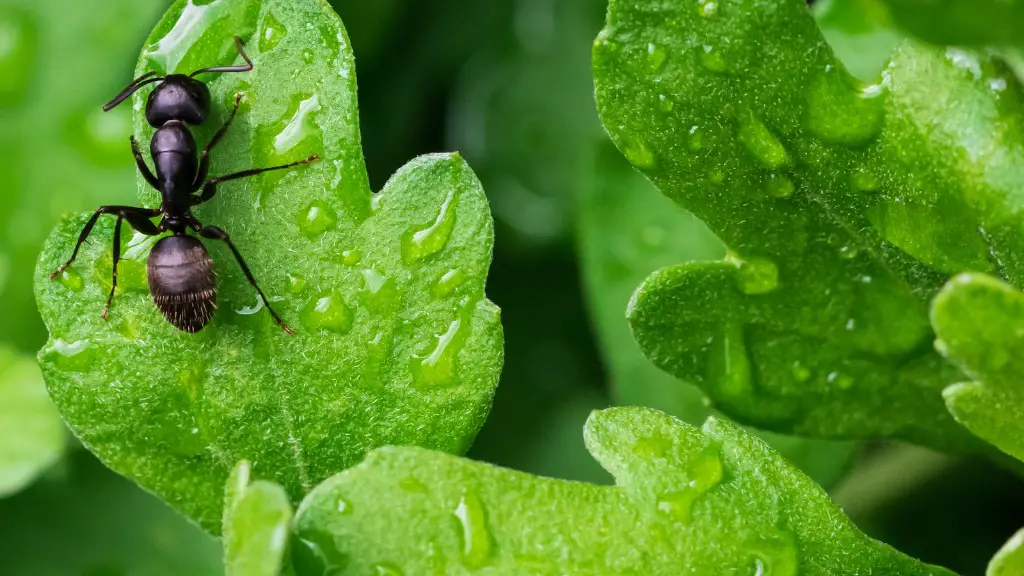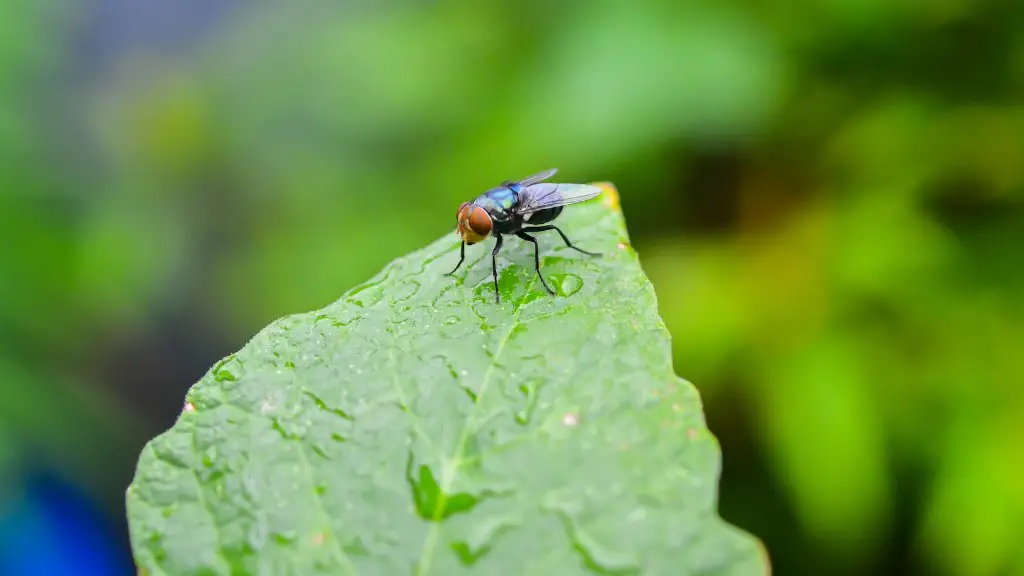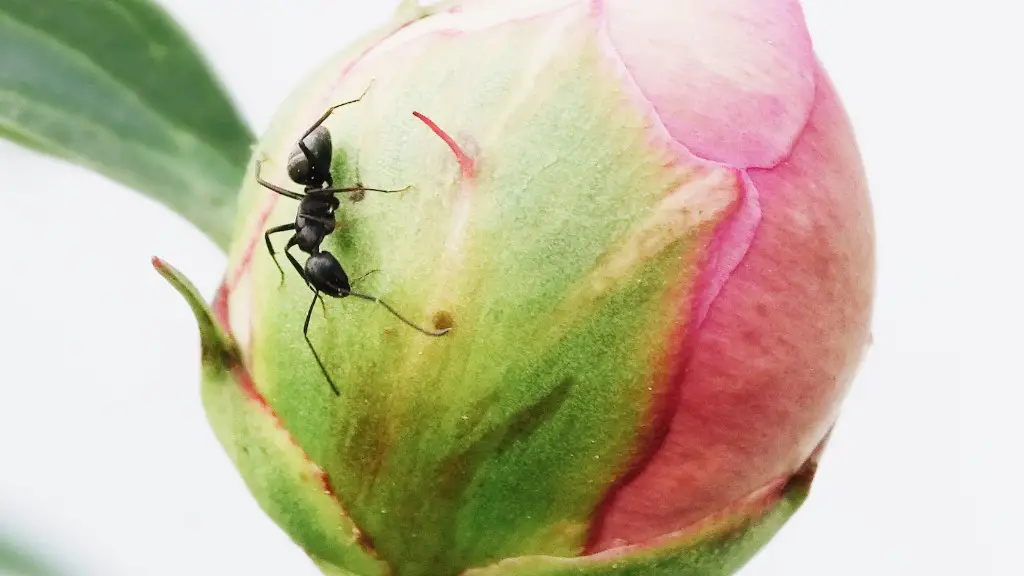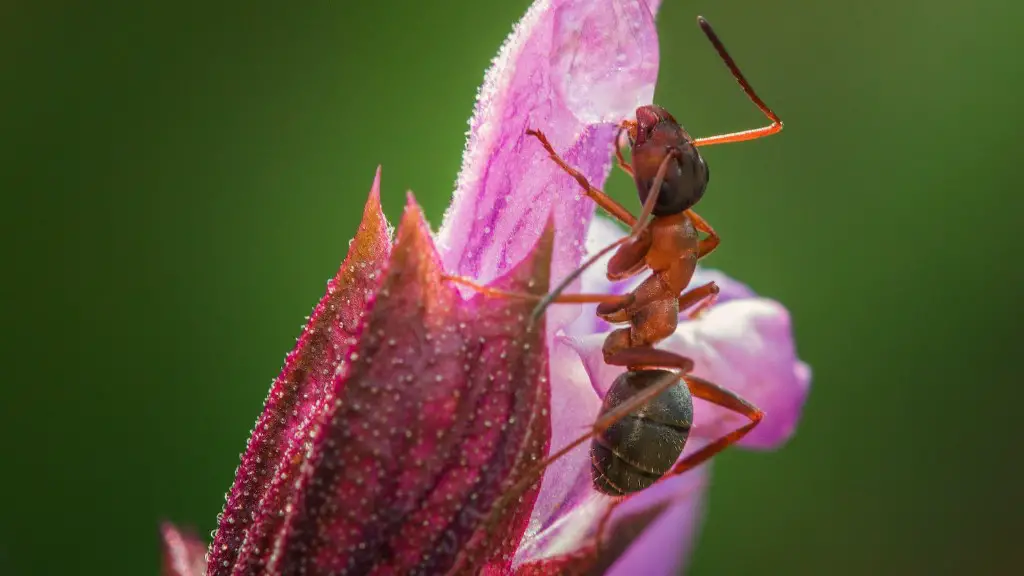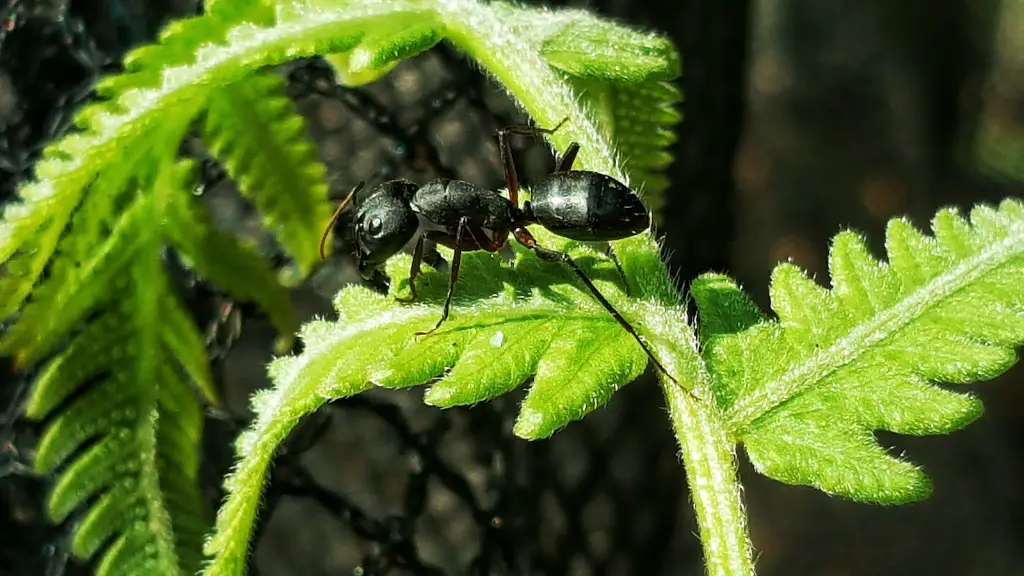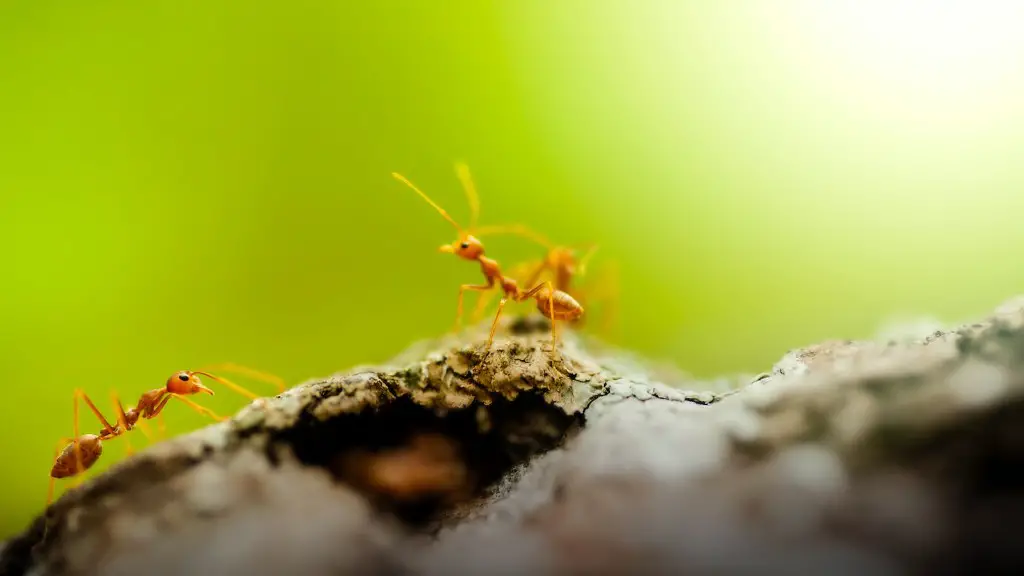What Exactly Causes Ants to Feel Pain?
When people think of animals feeling pain, naturally, they think of mammals and reptiles, creatures with complex nervous systems and pain-sensing receptors. But what about simpler animals like ants? Do ants feel pain when you kill them? It’s an interesting question and one that experts in the field have been trying to answer in recent years.
The simplest answer is that yes, ants do feel pain. In fact, experts in the field have come to the conclusion that if an organism has a nervous system, then they very likely feel pain just like mammals and reptiles. Pain has been seen as an evolutionary trait, meaning that it developed to help animals protect themselves from injury. In ants, it is believed that pain is used to differentiate between hostile and non-hostile external factors, and it’s this pain sensation that causes them to respond accordingly.
Pain is a subjective experience that varies from species to species. As far as ants are concerned, researchers believe that there are certain nerve cells known as ‘nociceptors’ that detect painful stimuli and transmit a “pain message” to the brain. These signals are then interpreted by the ant’s nervous system, which then triggers a behavioural response designed to help the ant avoid the painful stimulus, such as running away.
So far, the scientific research into whether ants can feel pain has been limited. However, there are a few studies that have looked into the matter and they suggest that yes, ants do feel pain in a similar way to mammals.
For example, a study by scientists at the University of Kiel in Germany demonstrated that when ants were subjected to a painful stimulus, they responded in the same way that mammals do. In other words, they demonstrated a startle response and tried to avoid the painful stimulus. This suggests that, like mammals and reptiles, ants do feel pain when affected by a painful stimulus and recognize it as such.
What Are the Consequences of Killing an Ant?
Naturally, the thought of killing an ant can be quite a daunting one, especially given the fact that they are capable of feeling pain and fear. But what exactly are the consequences of killing an ant?
One of the main consequences is that it could have an effect on the survival of the species as a whole. Ants are incredibly important species and are essential for the health of the ecosystem. Without them, the food chain could be disrupted, leading to ecological imbalance. Additionally, killing an ant could also lead to fewer of them being around, and fewer predators to help keep their populations in check. This could result in a population explosion, which would cause an even greater disruption to the ecosystems.
In addition to the potential damage to the environment, killing an ant can also be a difficult moral decision. Many people feel guilty about killing an ant, as it is an innocent creature that is capable of feeling pain like any other organism. As such, some people may choose to find ways to humanely remove them instead of killing them.
Finally, it’s worth noting that killing an ant could also have an effect on the overall health of the colony. When an ant dies, it leaves behind a chemical signature that other ants use to identify it. This signal tells the other ants that something has happened to the ant and triggers a defense response. The death of the ant could also trigger other colony members to become agitated and agitated ants can be more destructive.
Do Ants Have Any Adaptations to Help Prevent Pain?
Given that ants do feel pain, it’s clear that they have a number of adaptations in order to help them cope with external stimuli. For example, ants are able to sense pheromones and chemicals that can help them make decisions about their environment, as well as chemical signals that act as alarm signals. This allows them to detect danger and flee the area before it becomes a problem.
Ants also have the ability to fight off predators, relying on their fierce mandibles to deter or attack potential predators. This ensures that the ants are able to protect themselves and survive, while also being able to respond to threatening stimuli before they become a problem.
Another adaptation that ants have is their extremely resilient exoskeleton. The exoskeleton helps them to protect their internal organs and other sensitive areas. This helps to ensure that any potential injuries are not as severe as they could be if the ant did not have an exoskeleton.
Finally, many ants also have the ability to secrete various chemicals, such as formic acid, when they are threatened or attacked. This is believed to be an adaptation that ants have evolved in order to help deter potential predators and help them survive.
Is Killing Ants Humane?
As we’ve discussed, ants are capable of feeling pain, just like mammals and reptiles. As such, it’s essential that we understand the implications of killing an ant, as well as taking steps to ensure that it is done as humanely as possible.
For instance, it is important to avoid using chemicals or pesticides to kill ants, as this can prove fatal to other animals in the area, such as birds and rodents. Instead, it is better to use natural methods, such as vacuuming or capturing the ants and releasing them elsewhere.
It is also important to avoid deliberately harming an ant, as this could be more painful than killing it. If you must kill an ant, then it is best to use the most humane method possible – such as an ant-killing spray or a vacuum cleaner. Simply crushing it or spraying it with boiling water is likely to be more painful and less humane.
What Can We Do to Protect Ants From Injury?
Given that ants are capable of feeling pain, it’s important to remember that we should take steps to protect them from potential harm. Some of the ways in which we can do this include:
Avoiding the use of pesticides and other chemicals that could possibly be harmful to ants. These chemicals can seep into the ground and potentially disrupt the delicate balance in the ecosystem.
Trying to keep ants out of your home or garden. Ants are naturally drawn to food sources, so keeping food stored away and using ant traps can help to keep them out of your living space.
Reducing the amount of disturbance to their nests. Ants are incredibly sensitive to any kind of disruption, so it’s important to avoid disturbing their nests if possible.
Finally, educating yourself about ants and their needs. If you understand more about how ants live, then you will be better able to protect them from potential harm.
Can Humans Feel Empathy for Ants?
When it comes to humans and ants, one of the most interesting questions to ask is, can humans feel empathy for ants? After all, ants are incredibly small, but they’re still living creatures and capable of feeling pain, fear and other emotions, just like us.
The answer is yes, humans can feel empathy for ants. This is because we’re all capable of imagining ourselves in their position, as well as feeling compassion for their suffering. We can also sympathize and recognize their rights as living creatures and thus, try our best to protect them.
This is an important realization, especially considering the fact that ants play an essential role in the ecosystem and in our lives. We rely on them for pollination and controlling pests, and we ultimately need them for a balanced environment.
At the same time, it’s important to remember that animals, including ants, are capable of feeling pain and other emotions. Therefore, it’s essential that we do our best to protect them from any potential harm and treat them with respect.
